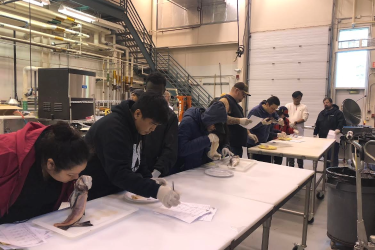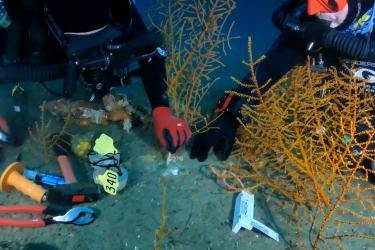NOAA’s Southeast Fisheries Science Center conducts research to understand how marine ecosystems function and how their components interact. We also evaluate how management actions and human impacts may affect the ecosystem holistically.
The Southeast Fisheries Science Center conducts Ecosystem-Based Fisheries Science by working across its divisions to address priority issues and national initiatives. This type of research supports ecosystem-based fisheries management, an approach that seeks to optimize benefits among a diverse set of societal goals by recognizing the physical, biological, economic, and social interactions among ecosystems.
We study the broad impacts of ecosystem stressors like hurricanes, water quality issues, and oil spills. We also analyze management strategies to consider effects among interacting species or fishing fleets which may have competing goals and objectives. The work we conduct to address ecosystem-based fishery management needs in the region includes:
- Studying the biological, social, economic, and cultural impacts of harmful algal blooms
- Ecosystem modeling to optimize management for predator and prey species
- Evaluating management strategies to best meet diverse fishery objectives, such as those that exist among recreational fisheries
- Predicting future impacts of climate change on fisheries and fishing communities, and helping managers find strategies to mitigate risks
- Scoping with and gathering feedback from external partners and fishing industry participants
Much of this work is supported through NOAA Fisheries’ Ecosystem, Climate, and Stock Assessment Improvement program, and by leveraging expertise and resources from collaborating agencies and academic partners. This work is supported by Integrated Ecosystem Assessment, a program that provides a sound interdisciplinary analytical and science-based framework to support effective ecosystem-based management of our nation’s resources. Work conducted under the Integrated Ecosystem Assessment program includes research to support Marine Sanctuaries, habitat restoration, and offshore energy planning.


